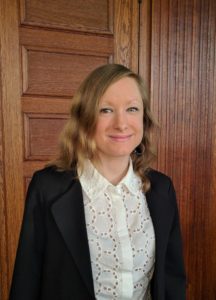Regula Krapf successfully defended her PhD dissertation January 12, 2017 at the University of Bonn, with a dissertation entitled, “Class forcing and second-order arithmetic.” I was a member of the dissertation examining committee. Peter Koepke was the dissertation supervisor.
Regula Krapf, Class forcing and second-order arithmetic, dissertation 2017, University of Bonn. (Slides)
Abstract. We provide a framework in a generalization of Gödel-Bernays set theory for performing class forcing. The forcing theorem states that the forcing relation is a (definable) class in the ground model (definability lemma) and that every statement that holds in a class-generic extension is forced by a condition in the generic filter (truth lemma). We prove both positive and negative results concerning the forcing theorem. On the one hand, we show that the definability lemma for one atomic formula implies the forcing theorem for all formulae in the language of set theory to hold. Furthermore, we introduce several properties which entail the forcing theorem. On the other hand, we give both counterexamples to the definability lemma and the truth lemma. In set forcing, the forcing theorem can be proved for all forcing notions by constructing a unique Boolean completion. We show that in class forcing the existence of a Boolean completion is essentially equivalent to the forcing theorem and, moreover, Boolean completions need not be unique.
The notion of pretameness was introduced to characterize those forcing notions which preserve the axiom scheme of replacement. We present several new characterizations of pretameness in terms of the forcing theorem, the preservation of separation, the existence of nice names for sets of ordinals and several other properties. Moreover, for each of the aforementioned properties we provide a corresponding characterization of the Ord-chain condition.
Finally, we prove two equiconsistency results which compare models of ZFC (with large cardinal properties) and models of second-order arithmetic with topological regularity properties (and determinacy hypotheses). We apply our previous results on class forcing to show that many important arboreal forcing notions preserve the
-perfect set property over models of second-order arithmetic and also give an example of a forcing notion which implies the Π 1 1 -perfect set property to fail in the generic extension. Π 1 1
Regula has now taken up a faculty position at the University of Koblenz.


